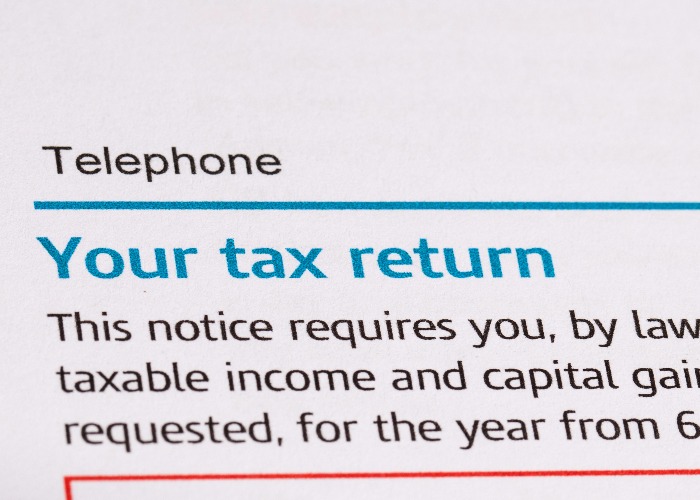Employed, self-employed, freelance, pensioner: do you need to fill out an online self-assessment tax return?

The self-assessment tax return deadline is fast approaching, but do you need to do anything about it?
Sections
Avoid unnecessary tax returns
The self-assessment online tax return deadline is 31st January so if you need to file one for the first time it's your last chance to get your number, fill out a form out and return it. But what if a notice to file a return hasn’t been sent to you – do you still have to do it?
Every year 400,000 people are advised to stop filing unnecessary tax returns by HMRC, but unfortunately the taxman doesn't always make it clear who does and doesn't need to file a return.
We've put together a quick guide to help you decide whether or not you should be completing an online tax return.
When you must file your tax return
Those who have been sent a notice to file a tax return should complete a return online, even if you don’t have any tax to pay. If you ignore the notice to file because you think you don't have to pay any tax you can still be fined £100 for not filing a return.
If you don't think you need to file a return you must phone HMRC and tell them your reason BEFORE the 31st January deadline.
Generally speaking, self-employed people, sole traders, partners in business and people who are both employed and do some self-employed work too will almost always have to fill in a tax return.
You'll also need to file a return if:
- you or your partner’s income was over £50,000 and one of you claimed Child Benefit;
- your income was over £100,000;
- you made profits from selling shares, a second home or other chargeable assets and need to pay Capital Gains Tax;
- you’re a company director (unless it’s non-profit organisation) and didn’t get any other benefits such as a company car;
- you have income from abroad that you needed to pay tax on or you lived abroad and had a UK income;
- you have dividends from shares and you’re a higher or additional rate taxpayer (however if you don’t need to send a return for any other reason you should call HMRC instead);
- you’re a trustee of a trust or registered pension scheme.
Others like religious ministers and Lloyd’s underwriters need to file a tax return. You can doublecheck on the GOV.UK website.
Money that hasn’t been ‘taxed at source’ needs to be declared in a tax return form as well. Money that has been ‘taxed at source’ is, as its name suggests, tax that has been taken off your employee wages or UK bank interest that has already been taxed.
To help you navigate the complex world of the tax return form we've put together a self-assessment tax return guide to help you file yours smoothly.
When you don’t need to file a tax return
You won’t need to fill out a form if your sole income is from your wages or pension. There's also a chance you may not have to pay if:
- you earned less than £2,500 in untaxed income last year from things like rent or savings income;
- your tax bill has dropped below £3,000 because of falling rates on savings and investments;
- you've moved careers from self-employment or freelance to full-time work or are living off a retirement annuity ;
- you didn’t claim employment-related expenses of more than £2,500.
For clarity's sake, it's best to give HMRC a phone on 0300 200 3310 to check.
Pay what you owe through your tax code
People who owe less than £3,000 and already pay tax through the PAYE system (for example because they're an employee or getting a company pension) can pay through their tax code. HMRC will automatically collect this, unless you’ve asked them not to on your tax return.
It’ll be taken through your salary or pension in equal amounts over 12 months, along with your usual tax deductions.
However, you can’t pay through PAYE if:
- you don’t have enough PAYE income for HMRC to collect it;
- you’d pay more than 50% of your PAYE income in tax;
- you’d end up paying more than twice as much tax as you normally would.
The deadline for declaring this was 31st December 2015 but if it's a small amount it's worth calling HMRC to see if the amount can be paid out over the next year through an adjustment to your tax code.
If you're in any doubt about your tax return or think you shouldn't be included in self-assessment, call HMRC on 0300 200 3310. Alternatively, you can use this online tool to confirm if you need to do an online return.
Get tax-free savings with a Cash ISA. Compare them with loveMONEY today!
Comments
Be the first to comment
Do you want to comment on this article? You need to be signed in for this feature